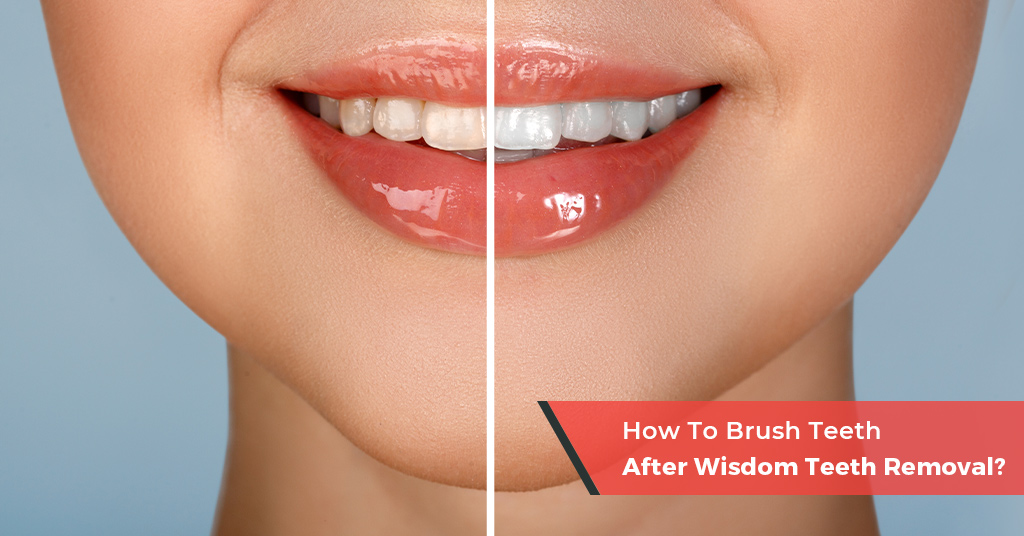Dec
How To Brush Teeth After Wisdom Teeth Removal?

A common question after wisdom teeth surgery is whether to brush your teeth immediately. Our experienced dentists recommend waiting at least 3 days before resuming your regular brushing routine.
Why? After the procedure, a blood clot forms at the extraction site. Brushing too soon can dislodge this clot, leading to a painful condition called “dry socket.”
To prevent dry socket and promote healing, gently rinse your mouth with warm salt water several times a day.
Can I Brush My Teeth However I Want After Three Days?
We understand that brushing teeth can be a comforting activity for many. After a good night’s sleep, waking up early in the morning is refreshing, but the bad breath might push you to rush to the sink to brush your teeth. It’s common for the discomfort of bad breath to cause nausea, leading people to spit harshly to get rid of the sensation. However, it is advised not to do this, even 3 to 4 days after undergoing wisdom tooth extraction surgery.
How Should I Brush My Teeth After Undergoing Wisdom Tooth Extraction Surgery?
- Instead of spitting out the toothpaste, let it gently drool from your mouth, then rinse with water. Be as gentle with yourself as possible—treat yourself like you would a baby.
- Use a soft-bristled brush. Life may bring tough challenges, but your toothbrush doesn’t have to be one of them. And remember, avoid aggressive brushing motions.
- Here’s a secret tip: immediately rinse your mouth with salt water after brushing.
How Many Times a Day should You Brush?
Imagine your mouth is a construction site. When your wisdom tooth was removed, it left a big hole, right? That’s like a fresh foundation for a new building. To make sure that foundation is strong and doesn’t crumble, we need to be extra careful.
Brushing too much is like using a jackhammer on a new foundation. It can dislodge the blood clot that’s forming to seal the hole. Think of that blood clot as a temporary bandage. If you pick at it or disturb it, it can come off, and then the hole is exposed. That’s when things can get really painful.
So, for the first week or so, keep your brushing gentle and limited to once a day. This will give that foundation time to set and become strong. Once it’s healed, you can gradually start brushing more frequently, but always be mindful of the area around the extraction site.
When Can I Resume My Brushing Routine?
Once the initial week is over, you can gradually increase the frequency of brushing. Start by brushing twice a day, and then gradually increase to three times a day as your mouth feels comfortable. Remember to always be gentle around the extraction site.
If you experience any pain or discomfort while brushing, stop and rinse your mouth with warm salt water. This can help soothe the area and reduce inflammation. If the pain persists, contact your dentist or oral surgeon for advice.
It’s also important to avoid using a hard-bristled toothbrush or brushing too vigorously. A soft-bristled toothbrush is gentler on your gums and healing tissues.
As your mouth continues to heal, you can gradually resume your normal brushing routine. However, it’s still a good idea to be mindful of the extraction site and avoid anything that could irritate it.
Can I Use a Mouthwash After a Wisdom Tooth Extraction?
Yes, you can generally use a mouthwash after a wisdom tooth extraction, but it’s important to choose the right kind. Avoid mouthwashes that contain alcohol, as these can irritate the extraction site. Opt for a gentle, alcohol-free mouthwash that’s designed for sensitive gums.
Are There Any Specific Brushing Techniques I Should Use to Avoid Irritating the Extraction Site?
When brushing after a wisdom tooth extraction, it’s important to be gentle. Avoid brushing directly over the extraction site for the first few days. Instead, focus on brushing around the area. Use a soft-bristled toothbrush to minimize irritation.
How Often Should I Floss After a Wisdom Tooth Extraction?
Flossing is generally discouraged for the first few days after a wisdom tooth extraction to avoid disturbing the blood clot. Once the initial healing period has passed, you can resume flossing, but be gentle around the extraction site.
Conclusion
In short, after wisdom teeth removal, be gentle with your brushing! Wait at least three days, use a soft-bristled toothbrush, and rinse with warm salt water. Avoid brushing too close to the extraction site and go easy on the motions. Over time, you can gradually return to your normal routine. If something feels off or painful, don’t hesitate to reach out to your dentist. Take it slow, and your mouth will thank you!
